The Mwele Malecela Mentorship Program – Cohort I
The Mwele Malecela Mentorship Programme
Cohort I, 16 August 2023
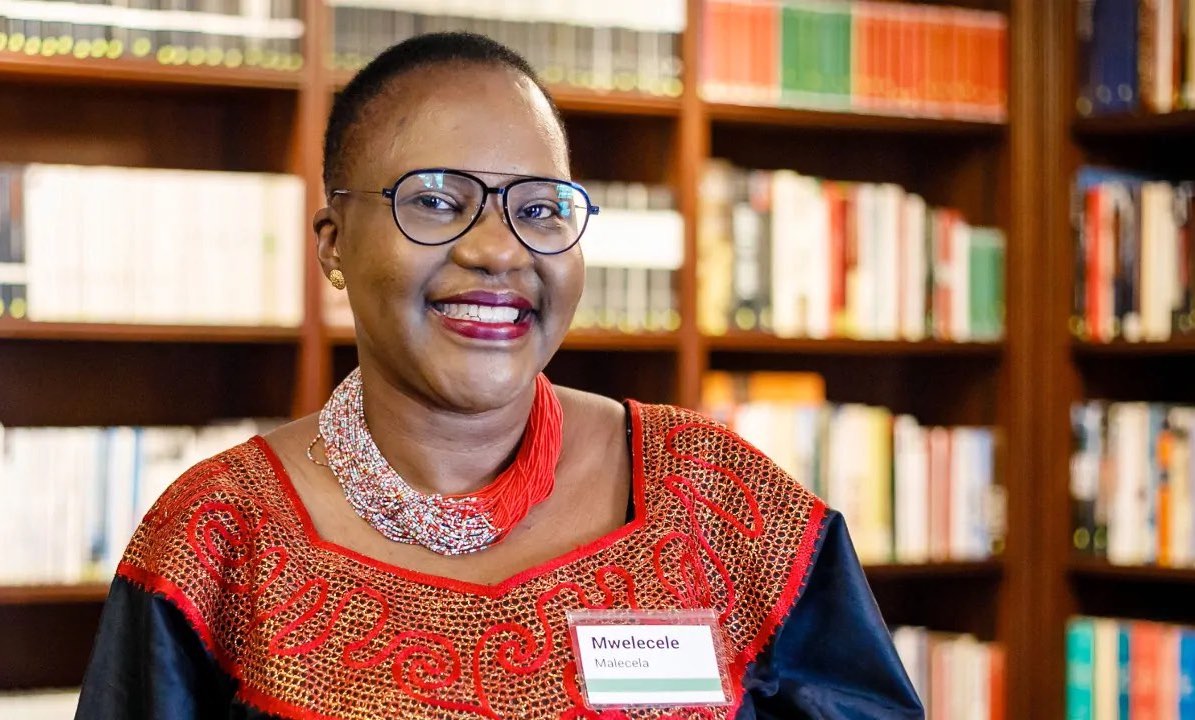
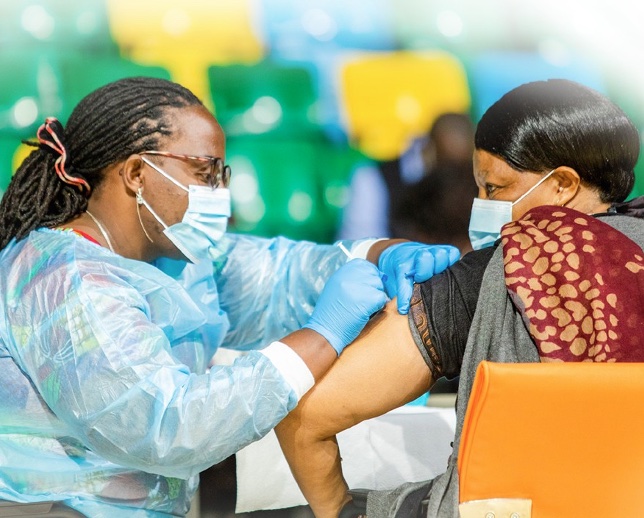
We are excited to introduce you to the remarkable community that is the Mwele Malecela Mentorship Program. Here, you'll have the opportunity to meet the exceptional individuals who make up our inaugural cohort: our driven Mentees and our experienced Mentors.
Our programme is dedicated to supporting mid-career African women in their journey to become leaders and champions in the elimination of Neglected Tropical Diseases (NTD) at both national and international levels. Officially launched on August 16, 2023, Cohort I of the MMM Programme will be running for two years. During this time, both Mentees and Mentors will have access to a wealth of resources, networking opportunities, and professional development experiences.
For our Mentees, this programme offers a unique chance to gain insights from seasoned experts in the field, expand their leadership skills, and drive impactful change in the NTDs field. Mentors, on the other hand, have the privilege of shaping the future leaders of NTD elimination and contributing their extensive knowledge to the next generation.
As Cohort I progresses, we anticipate numerous opportunities for collaboration, learning, and growth for all participants. Together, we aim to foster a vibrant mentoring community dedicated to advancing the cause of NTD elimination in Africa and beyond.
We invite you to explore the inspiring stories and profiles of our Cohort I Mentees and Mentors, which showcase the diverse talents, experiences, and ambitions that make this programme truly exceptional. Whether you are a Mentee seeking guidance or a Mentor eager to share your expertise, our mentorship community offers unwavering support.
Join us on this transformative mentorship journey, and let's work together to make a meaningful impact in the field of NTDs!
MENTEES
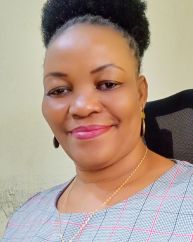
Dr. Basiliana Emidi
Dr. Basiliana Emidi is a Principal Research Scientist in Field Medical Entomology working with the National Institute for Medical Research (NIMR) in Tanzania with vast experience of over 19 years. She holds a Doctor of Philosophy (Ph.D.) degree in Medical Entomology. She is the head of the Parasitic Diseases Research Program at NIMR Mwanza, Tanzania. She has recently been nominated to serve as a member of the Africa Integrated Vector Management (IVM) Advisory Panel of Experts of the African Union Development Agency (AUDA-NEPAD) on vector control emerging technology, including the Gene Drive technology for Malaria Control and Elimination in Africa. Dr. Basiliana is the first Country Coordinator for women in vector control in the Pan-African Mosquito Control Association (PAMCA) Tanzania Chapter.
Dr Basiliana Emidi
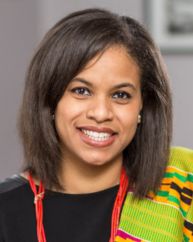
Deborah Fulamuso Mensah
Deborah Fulamuso Mensah is the Program Director for the African Region at American Leprosy Missions (ALM). With almost 15 years in Global Health, she's dedicated to enhancing healthcare access for vulnerable populations. She excels in conceiving, managing, and monitoring public health projects across Africa, Southeast Asia, and North America. Collaborating closely with governments in Liberia, Ghana, Kenya, Senegal, Benin, and Côte d'Ivoire, Deborah shapes health strategies and policies. At grassroots levels, she oversees community-based initiatives for neglected tropical diseases (NTDs) and maternal, newborn, and child health. Her NTD focus includes Skin NTDs and MMDP policy implementation. Committed to NTD integration in Universal Health Coverage, Deborah aims to drive transformative policies alongside impacted communities. She holds a Bachelor's from the University of Toronto and Master's from London School of Hygiene and Tropical Medicine, currently pursuing a PhD at University of Ghana's School of Public Health.
Ms Deborah Fulamuso Mensah
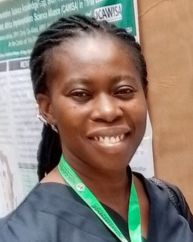
Ms. Chinenye Bembir
Dr. Chinenye Bembir, PhD, MPH, is a dedicated research fellow affiliated with the World Health Organization/Tropical Diseases Research (WHO/TDR) Implementation Research scheme. She specializes in the field of epidemiology, with a focus on infectious diseases such as Malaria and Helminth infections. With a strong commitment to improving public health, she conducts research to generate high-quality data that can positively impact vulnerable and rural communities. Dr. Bembir has a wealth of experience leading research teams and implementing research grant projects funded by prestigious organizations, including the NIH, World Health Organization, World Bank, DFID/UK, and the Malaria Consortium. Her expertise spans various epidemiological contexts, allowing her to address complex health challenges effectively.
Currently serving as a Senior Research Investigator and Postdoctoral Fellow at the Center for Translation and Implementation Research in Enugu, Nigeria, Dr. Bembir co-leads the implementation of an NIH-funded research grant. Her work is characterized by the use of advanced research and data analysis tools such as Epidata, SPSS, N-Vivo, and MaxQDA.
In pursuit of her career goals, Dr. Bembir aspires to become an independent scientist with a substantial level of expertise and influence in global health, particularly in the realms of implementation and data science. She is deeply passionate about fostering mentorship and support for the next generation of women in low- and middle-income countries who are interested in public health. She is committed to advancing their careers and ensuring their success in the field.
Ms Chinenye Bembir
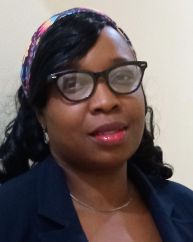
Ms. Rolayo Toyin Emmanuel
Rolayo Toyin Emmanuel is a solution-oriented research scientist with 15 years of extensive experience in laboratory-based research, integrated disease surveillance, and control. As a Research Officer at the Nigerian Institute for Trypanosomiasis and Onchocerciasis Research, she has showcased meticulousness, resilience, and proactivity.
Her aptitude for conceptual reasoning is matched by administrative coordination and field management skills in public health programs. Adaptive and receptive to new learning, she excels both independently and as part of a team, showcasing interpersonal intelligence.
Proven leadership is evident through active participation in institutional committees and excelling as Acting Head of Department. Presently, she leads projects focused on Xenosurveillance, Transmission Risk Assessment of Human African Trypanosomiasis, and evaluating Essential Oil's repellent potentials against Tsetse flies. She aspires to contribute significantly to achieving SDG 3—ensuring healthy lives and well-being—passionately driving diverse health-related programs with diligence and respect for diversity.
Ms Rolayo Toyin Emmanuel
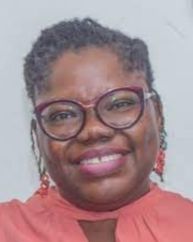
Dr. Lydia Mosi
Dr. Lydia Mosi is an Associate Professor of Cell and Molecular Biology at the Department of Biochemistry, Cell and Molecular Biology, University of Ghana, Legon, and the Deputy Director, of administration of the West African Centre for Cell Biology of Infectious Pathogens. She holds a combined major BSc. degree in Biochemistry and Zoology from the University of Ghana, Legon, and a PhD in Microbiology from the University of Tennessee. Prof. Mosi’s research focuses on unearthing transmission of the neglected tropical skin disease Buruli ulcer, developing early diagnostic tools, and identifying antimicrobial resistance in secondary infecting microbes.
Her lab is a core member of the World Health Organization Laboratory Network group for Buruli ulcer diagnosis (BU-LABNET). She is a member of the American Society for Tropical Medicine and Hygiene, Validate Network, Royal Society for Tropical Medicine and Hygiene, GH Scientific, and the American Society of Microbiology. She is a fellow of the African Academy of Sciences Affiliates Programme and the African Science Leadership Programme of which she is also a facilitator.
Dr Lydia Mosi
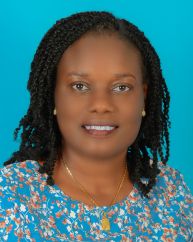
Ms. Christine Wanjala
Christine Wanjala holds a BSc Degree in Medical Microbiology from Jomo Kenyatta University of Science and Technology, an MSc in Medical Parasitology from Egerton University, and a PhD in Medical Entomology from Kenyatta University. She currently serves as a lecturer at Masinde Muliro University of Science and Technology. Her specialization lies in Medical Parasitology and Vector Biology, with research interests focused on malaria vector control and soil-transmitted helminthiases.
As a University Lecturer, she has successfully trained both undergraduate and postgraduate students in Medical Parasitology, Microbiology, and Entomology. Her vision is dedicated to seeking solutions and disseminating knowledge to effectively control and eliminate vector-borne parasitic diseases that are emerging and reemerging globally.
Ms Christine Wanjala
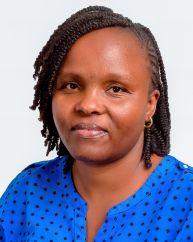
Ms. Faraja Serephin Lyamuya
Faraja Serephin Lyamuya is an epidemiologist with more than 10 years experience in public health and epidemiological studies. She has a broad background in clinical medicine and field investigations. She has experience in field investigations for infectious diseases including outbreak-prone diseases, vaccine-preventable diseases, and NTDs. Currently she is a lymphatic filariasis focal point at Tanzania Neglected Tropical Diseases Control Program (NTDCP). Passionate about reducing health disparities and improving population health. She believes that research and discoveries in the field will make difference in the lives of many.
Ms Faraja Serephin Lyamuya
Dr. Rose Elizabeth Peme Monteil
Dr. Rose Elizabeth Peme Monteil is an experienced public health specialist with more than 20 years of managing health programs at district and national levels. She has extensive experience on NTDs and community engagement on NTDs; she played a key role during the design and implementation of the first integrated MDA supported by USAID in Senegal. Since April 2019, she has served as project director of the USAID-funded Act to END NTDs implemented by FHI360 in Senegal. Prior to joining FHI360, Dr. Monteil worked as District chief medical doctor in Senegal, and NTDs Technical Advisor for a USAID bilateral project in Senegal. She also supported the implementation of health projects in Guinea, Bissau Guinea, Cap-Vert, and Mali working with various donors which provided her with a large perspective on managing health programs in changing environments and different community settings.
Dr. Rose Monteil holds a medical doctor diploma and a Master of Public Health from the University Cheick Anta Diop of Dakar.
Dr Rose Elisabeth Peme Monteil

Dr. Nissou Ines Dossa
Dr. Nissou Ines Dossa's journey is a testament to her exceptional accomplishments in medical studies, biochemistry, and public health. Her academic odyssey commenced in 2000 at Benin's Faculty of Health Sciences, leading to a successful graduation in Biochemistry from France's University Claude Bernard Lyon I in 2005. Her commitment to excellence persisted as she earned a master's degree in Communicable and Tropical Diseases in 2007, followed by a Ph.D. in Public Health from the University of Montreal, where her 2014 thesis focused on the aftermath of conflict-related sexual violence in the Nord-Kivu province of the Democratic Republic of Congo. Nissou's research prowess encompassed diverse domains, including virus and parasite infection strategies, maternal and child health, nanotechnology, and health workforce enhancement.
Returning to Benin in 2015, she devoted herself to improving public health. Her tenure included collaborations with the Institut de recherche pour le Développement on maternal and neonatal health and a pivotal role as Senior Monitoring and Evaluation (M&E) officer for the ENVISION project, concentrating on Neglected Tropical Diseases (NTDs). As M&E Advisor for the Act | West project, she exhibited unwavering dedication to refining NTD programs, particularly in Benin. Her strategic expertise catalyzed the control of several Preventive Chemotherapy for NTDs, such as lymphatic filariasis, onchocerciasis, and trachoma, both in Benin and across African nations. Beyond the field, she championed the shift to digital data collection tools, fortified NTD databases' security, and facilitated electronic MDA campaigns, while fostering data integration into the DHIS-2 system for comprehensive discussions.
Dr Nissou Ines Dossa
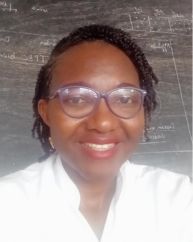
Ms. Alvine Christelle Kengne
Alvine Christelle Kengne is a passionate scientist and educator specializing in parasitology, with a particular focus on Schistosomiasis. Committed to alleviating the socio-economic burden of neglected tropical diseases (NTDs), she actively contributes to the advancement of antivector control strategies targeting intermediate hosts.
In 2020, Alvine embarked on her professional journey at the University of Yaoundé I, Cameroon, where she conducts groundbreaking research on Schistosomiasis. Her dedication extends beyond research as she excels in teaching, inspiring students, and sharing innovative insights.
Notably, Alvine's leadership shines through her role as the principal investigator of a research project funded by prestigious institutions like MRC, UK, and GCRF, UK, through the PIIVeC program by CRID Cameroon. Her responsibilities span project conception, budget management, and collaborative work, highlighting her adaptability and expertise.
Before her current role, she served as a stand-in teacher at a medico-health training school from 2015 to 2019, demonstrating her unwavering commitment to education and healthcare. Alvine is a brilliant scientist, known for her reliability, adaptability, and focus, thriving both in team settings and independently. Her strong work ethic, problem-solving prowess, and dedication make her an invaluable asset in the fight against NTDs like Schistosomiasis.
Ms Alvine Christelle Kengne
MENTORS

Dr. Josephine Namboze
Dr. Josephine Namboze is the WHO Representative to Botswana and SADC since August 2019. Previously she was the WHO Country Representative to Eritrea.
Leading the WHO country team in Botswana in delivering high-quality results, Dr. Namboze’s main roles are to ensure WHO’s effective health leadership at the national level and advise and coordinate the provision of WHO’s technical assistance to the Ministry of Health and Wellness and other national and international partners on public health issues, strategies, priorities, and programs.
Dr. Namboze has been a Public Health specialist at national and regional levels for 30 years, out of which 26 at the World Health Organization. Her specific contributions have been in the areas of health policy development and strategic planning; facilitation of national capacity strengthening in the six health systems building blocks with a specific focus on systems development for better delivery of disease prevention and control interventions, as well as health services along the life course; partnerships development; and disease outbreaks investigation and management. She contributed her skills in building capacities for institutional and organizational frameworks for health actions at all levels.
Her motivation is mainly in ensuring all systems work together to produce results, ensuring minimum overlapping and facilitating the best solutions for investments. She values relationships working with diverse teams to produce results, and ensuring that services reach the target groups.
Coming from Uganda, Dr. Namboze is married and a mother of three children. She best relaxes with a book in hand and background music at the end of the working week. To practice what she preaches every day, she follows a discipline for a healthy diet and physical exercise.
Dr Josephine Namboze
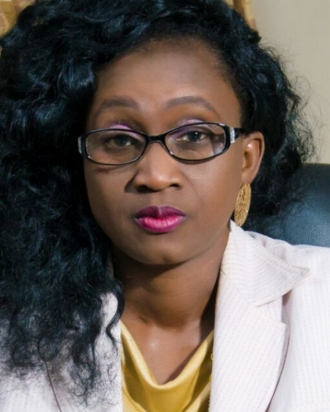
Olajumoke Abimbola Morenikeji
Olajumoke Abimbola Morenikeji, a distinguished academic with a Ph.D. in Zoology from the University of Ibadan, is a Professor in the Department of Zoology at the same institution. Her research primarily focuses on tropical parasitic diseases, including guinea worm, malaria, schistosomiasis, and helminths, with a keen interest in using Geographic Information Systems (GIS), remote sensing, and nanotechnology in her studies. Notably, she's currently investigating soil-transmitted helminth distribution patterns and the interaction of heavy metal pollutants with intestinal parasites in rodents from polluted areas.
Prof. Morenikeji has an extensive publication record, including over 100 papers and four books. She is a dedicated educator, teaching a range of modules in Zoology to both undergraduate and postgraduate students. Her mentorship has guided numerous students through their BSc, MSc, and Ph.D. programs.
With an impressive list of sponsorships, scholarships, fellowships, and grants from various institutions and organizations, including UNICEF, WHO, and National Geographic, she has made significant contributions to the field. Prof. Morenikeji is also deeply involved in environmental and biodiversity conservation and has played key roles in various wildlife sanctuaries in Nigeria. She holds leadership positions in professional organizations and conservation efforts, emphasizing her commitment to wildlife and environmental protection.
Ms Olajumoke Morenikeji
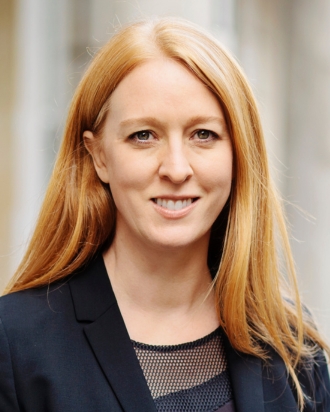
Ellen Agler
Ellen Agler is the Chief Executive Officer of the END Fund, dedicated to ending the suffering caused by neglected tropical diseases (NTDs) for 1.5 billion individuals. She previously held the position of Senior Vice President at Operation Smile, overseeing comprehensive care programs for children with cleft lips and palates across 60+ countries. Agler played a pivotal role in advocating for essential surgery as a global health policy and led initiatives promoting "health as a bridge to peace" in conflict zones.
As the Director of International Operations at the International Medical Corps (IMC), she managed complex humanitarian medical interventions in over 20 nations, including responses to the 2004 East Asia Tsunami and operations in Darfur, Somalia, Iraq, and Afghanistan. With graduate degrees in International Health and Development Studies from the Harvard School of Public Health and the London School of Economics, respectively, she is well-versed in humanitarian affairs and non-profit management. Agler serves on the boards of Legatum Institute and the World Economic Forum's Global Health Security Advisory Board, while also contributing to the Uniting to Combat Neglected Tropical Diseases Stakeholders Working Group, focusing on NTD elimination.
Ms Ellen Agler
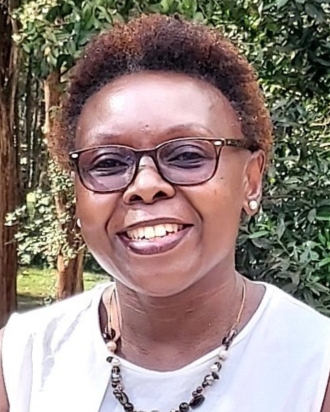
Helen Bokea
Helen Bokea is a health systems strengthening expert with over 16 years of global health experience leading complex consortia public health programs in sub-Saharan Africa. She has overseen initiatives related to health research, NTDs, Neonatal health, capacity building, and strategic planning; and spearheaded the development of strategic partnerships with a variety of stakeholders, including government ministries, research institutions, grantees, communities, and implementing partners. Through her work, Helen has traveled extensively to remote areas in more than 10 sub-Saharan African countries, for last-mile delivery working with underserved and marginalized populations. She has worked at the global, regional, national, and local levels for organizations such as NEST360, Sightsavers, and CBM.
Helen is passionate about developing strong country-led programs and health systems as a sustainable means of reaching the elimination of NTDs. Her work has contributed to trachoma elimination efforts in several African countries including Ethiopia, Chad, Cameroon, and Uganda; as well as Malawi and Benin which notably were both recently validated for having eliminated trachoma as a public health problem.
Helen holds a Master’s in Public Health from the University of Liverpool and a Master of Science in Management and Organisational Development from the United States International University (Africa). She is currently Head of NTDs at FIND.
Ms Helen Bokea
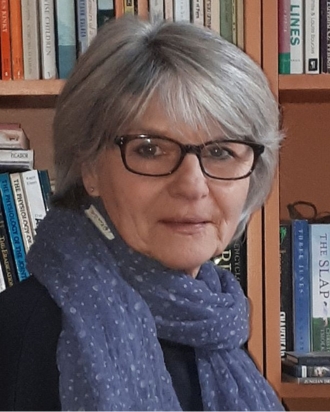
Dr. Stefanie Meredith
With over 30 years of experience in public health and international development policy, Dr. Stefanie Meredith specializes in tropical public health interventions in Africa. Her extensive background includes managing large-scale programs at global, regional, and country levels, ensuring technical excellence. Notably, she directed the Mectizan Donation Programme and led efforts against Visceral Leishmaniasis in South Asia and East Africa. Dr. Meredith's versatile career encompasses research on vector-borne diseases, Neglected Tropical Diseases, and disease control programs. As an independent consultant, her expertise expanded to reproductive health, medicine access, R&D for developing world diseases, and gender issues. Serving as Editor-in-Chief of the Royal Society of Tropical Medicine and Hygiene maintains her connection to scientific advancements. Her holistic perspective stems from fostering collaborations, bridging sectors, and understanding their roles in enhancing global health outcomes.
Dr Stefanie Meredith
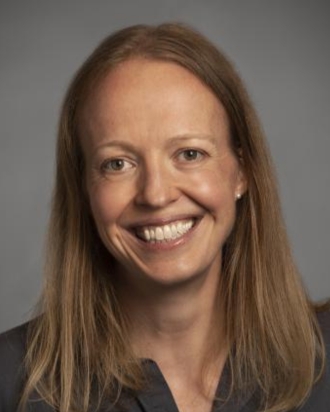
Katherine Gass
Katherine Gass is the Director of Research at the NTD Support Center, where she provides technical expertise and strategic guidance to the operational research portfolio. Prior to this position, Katie served as the epidemiologist at the NTD Support Center. Katie has also provided statistical and programmatic consulting for other public health programs including UNICEF, RTI, Helen Keller, and the A2Z Micronutrient Project at the Academy for Educational Development. Katie also served as a Peace Corps Community Health volunteer in Peru from 2003-2005.
Katie's research interests lie in the development of monitoring and evaluation strategies that can help NTD programs reach their end targets. Her expertise is in sampling designs and analytic tool development. Katie earned her PhD and MPH in Epidemiology from Emory University and holds a BA in Mathematics and Theatre from Oberlin College.
Ms Katherine Gass

Lisa Rotondo
Lisa Rotondo is a global health expert, with more than 20 years of experience leading teams to end disease and strengthen health systems around the world. As RTI International’s Senior Director of Malaria and Neglected Tropical Diseases, she provides strategic leadership and oversight for these two key global health portfolios, ensuring technical thought leadership and programmatic excellence while collaborating with key stakeholders including health ministries, the World Health Organization, the private sector, and the nonprofit, academic, and research communities. Ms. Rotondo’s high-impact portfolio at RTI has included funding from the United States Agency for International Development (USAID), the Bill & Melinda Gates Foundation, The END Fund, and other clients, leveraging these and public-private partnerships to deliver tangible results, including assisting 10 countries to achieve elimination of infectious diseases to date. She has led USAID's global flagship neglected tropical disease (NTD) projects reaching Asia, Africa, and the Americas since 2011, currently serving as Director of USAID’s Act to End NTDs | East program and previously leading USAID’s ENVISION and NTD Control Program.
A people-focused collaborator and recognized technical expert, Ms. Rotondo has served on global advisory and leadership bodies, including the Trachoma Expert Committee, the Soil-Transmitted Helminth Advisory Committee, the NTD Non-Government Organization Network (NNN), and the Uniting to Combat NTDs Stakeholder Working Group. She was a Peace Corps volunteer in Burkina Faso and is fluent in English and French and proficient in Spanish.
Ms Lisa Rotondo

Dr Kelly Zongo
Dr. Zongo is a Senior Director with the END Fund's Flagship Fund. She holds a PhD in Medical Anthropology from the Ohio State University and a Masters of Public Health from Tulane focused on International Health and Development in the context of complex emergencies. Her work prior to joining the END Fund focused on gender, social protection, social determinants of health, and health equity in global health with various international organizations including The World Bank, Catholic Relief Services, UNICEF, and Women for Women International. She has led global health research and programs for almost two decades across Africa, Asia, Eastern Europe, Latin America, and the United States.
Her experience has been recognized by several prestigious awards including a Fulbright IIE Research award, a National Science Foundation research grant, the Jennings Randolph Peace Scholars award, and the West Africa Research Association fellowships. She has authored one book, Hope on the Brinks: Dreams and Nightmares Crossing Borders, and a breadth of research papers and articles on ways to improve gender and social equity in global health. Dr. Zongo is fully proficient in speaking, reading, and writing French and has extensive field experience, including being based in the Democratic Republic of Congo and Cameroon for over 12 years.
Dr Kelly Zongo
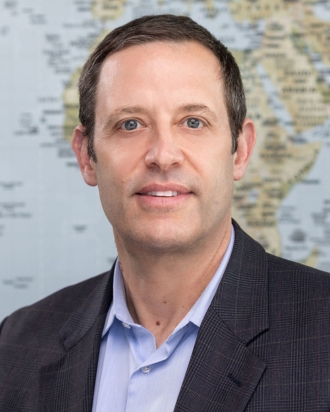
Dr. Judd Walson
Dr. Judd Walson is the incoming Chair of the Department of International Health at the Bloomberg School of Public Health at Johns Hopkins University (pending approval of the University Board of Trustees). He is also a Professor of Global Health, Medicine (Infectious Disease, Pediatrics, and Epidemiology at the University of Washington. Dr. Walson has extensive experience working across research, public health programming, policy development, product development, and clinical practice. Dr. Walson has significant experience in strategic planning and analysis, having worked with many large organizations, industry partners, and private foundations to inform evidence-based decisions and programming and he has served as a strategic and clinical consultant for industry and non-profit organizations. Dr. Walson also has significant experience in product development across vaccines, diagnostics, and devices. He has designed, managed, and completed multiple large multi-country clinical trials and observational studies in collaboration with governments, industry, nongovernmental organizations, and academic partners in sub-Saharan Africa and South Asia, including in Bangladesh, Benin, Burkina Faso, India, Kenya, Malawi, Nepal, Pakistan, Thailand and Uganda. Dr. Walson is an inspirational leader who has effectively supervised large teams of professionals from diverse backgrounds and cultures. In addition, He has been board-certified in Internal Medicine, Pediatrics, and Infectious Diseases.
Mr Judd Walson
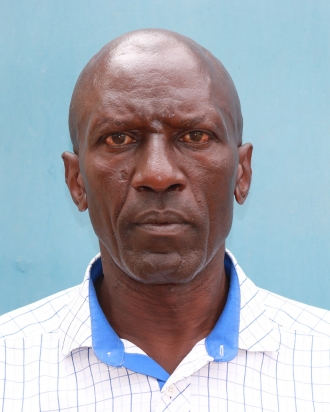
Motari Omariba
Motari Omariba is the Health Officer at Adventist Development and Relief Agency (ADRA) - Kenya, with over 15 years of dedicated experience. He's been instrumental in impactful community development and counseling, working with diverse groups, including PWDs, HIV/AIDS patients, adolescents, immigrants, and more. Roles encompass healthcare, counseling, mentoring, research, training, and lecturing.
He's championed efforts against gender-based violence, empowering women in indigenous and immigrant communities, notably in Turkana County. His seven-year engagement in anti-FGM programs safeguards women. He mentors anti-FGM adolescent girls for justice advocacy.
Motari excels in community-based rehabilitation, prioritizing PWDs. Proficient in orthopedic management, he aids children with disabilities. His roles span rehabilitation, psycho-social support, forming epilepsy and leprosy support groups, and healthcare staff training.


